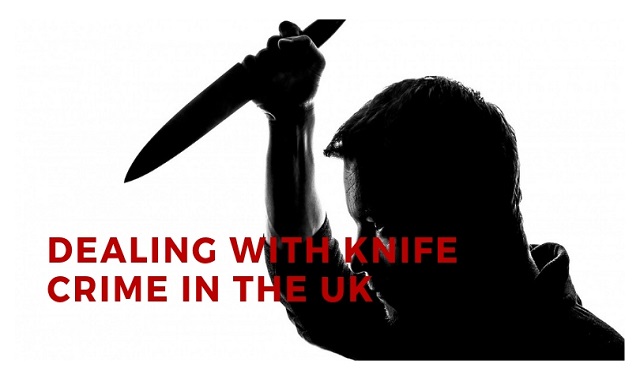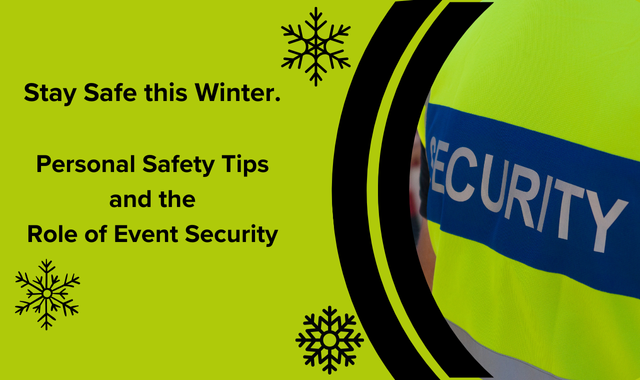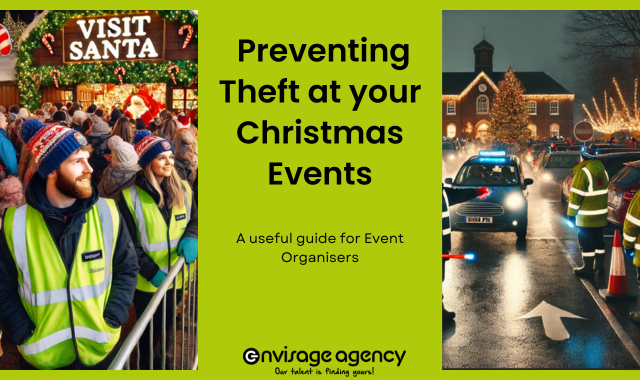Staying Safe This Winter: Tips for Personal Safety and the Role of Hired Security at…

Dealing with Knife Crime in the UK
Dealing with Knife Crime in the UK
Hardly a day goes by without a report of another serious attack in which someone is stabbed or slashed. In 2017, there were over 280 deaths attributed to being stabbed with a bladed or sharp article, the highest number recorded in the UK. And the figure continues to rise.
For event organisers, knife crime is an issue that requires serious thought and should be included in the event security strategy which deals with all eventualities – stabbings and slashing included. And this means we need to understand what the statistics and facts, taken from a recent BBC article on knife crime, are telling us.
WHO is likely to be stabbing victim?
Hospital admissions for assaults with a sharp object are higher for those aged 19 with around 4,000 reported cases in 2017 compared to just over 500 cases for those aged 18 and under. These numbers are worrying, although 2017 reported hospital admissions for assaults with a knife are lower than those from 10 years previously.
Most perpetrators of knife crime are also over the age of 18.
WHEN are knives more likely to be used?
According to collated police figures from England and Wales, knives are commonly used in assault (47% or nearly 20,000 cases) and 43% of reported robberies. 8% of threats to kill are with a bladed article and in a small number of reported rape and sexual assault cases (2%), a knife was also used.
MORE people are dying from knife attacks
The data from 2017 shows a clear surge in deaths from knife crime. Again, the data makes for sobering reading;
• In two of every 5 cases, the victim was fatally assaulted with a sharp object or stabbed.
• One in four victims are male between the ages of 18 and 24
• A quarter of stabbing victims are black, the highest proportion since data began to be collected in 1997
Knife crime is a real problem…
But there are other pieces of key information we need to present a balanced view. Compared to assaults overall, most serious assaults happen without a weapon. And compared to other regions across the UK, stabbing fatalities and serious injuries from assaults with a knife or other sharp object is much higher in London.
Knife crime and event security
Like a random attack on an event, as event organiser, you will need to be prepared for the potential of issues relating to knives and sharp objects. There are steps you can take to minimise assaults with bladed weapons;
- Bag searches – carrying out bag searches are essential but also being aware of what people are carrying on their person. Experienced event security personnel are trained to spot problems. If a member of the event security team has suspicions about someone, they will call the police for further assistance.
- Preventative action – with an assailant brandishing a knife, keeping a distance from the outstretched arm with the knife in hand is the immediate course of action, followed by putting a solid object between you and the attacker. Event security staff should also wear protective gear such as stab vests.
- First aid – first aiders trained to deal with all manner of accidents and injuries are essential for taking life-saving action. Pressure on the wound to stem the blood flow, followed by a 999 call is critical.
Punishments for knife crime are increasing as are those for carrying a knife with no good reason. It is an issue that event security staff may need to deal with which is why it is important to understand the picture of knife crime in the UK.
GET IN TOUCH


